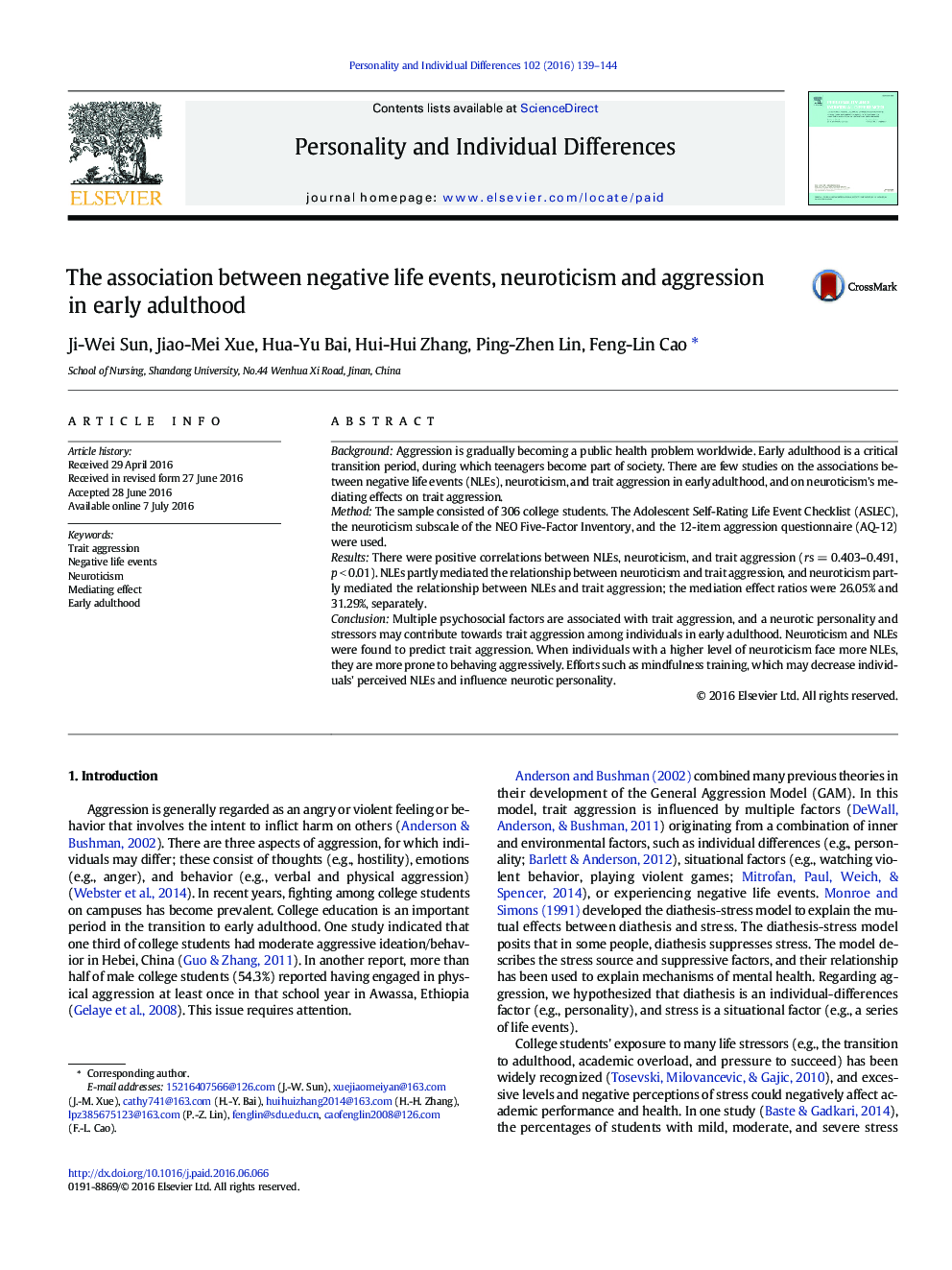| Article ID | Journal | Published Year | Pages | File Type |
|---|---|---|---|---|
| 889666 | Personality and Individual Differences | 2016 | 6 Pages |
•Negative life events and neuroticism predict aggression in early adulthood.•Negative life events partly mediate association between neuroticism and aggression.•Neuroticism partly mediates association between negative life events and aggression.
BackgroundAggression is gradually becoming a public health problem worldwide. Early adulthood is a critical transition period, during which teenagers become part of society. There are few studies on the associations between negative life events (NLEs), neuroticism, and trait aggression in early adulthood, and on neuroticism's mediating effects on trait aggression.MethodThe sample consisted of 306 college students. The Adolescent Self-Rating Life Event Checklist (ASLEC), the neuroticism subscale of the NEO Five-Factor Inventory, and the 12-item aggression questionnaire (AQ-12) were used.ResultsThere were positive correlations between NLEs, neuroticism, and trait aggression (rs = 0.403–0.491, p < 0.01). NLEs partly mediated the relationship between neuroticism and trait aggression, and neuroticism partly mediated the relationship between NLEs and trait aggression; the mediation effect ratios were 26.05% and 31.29%, separately.ConclusionMultiple psychosocial factors are associated with trait aggression, and a neurotic personality and stressors may contribute towards trait aggression among individuals in early adulthood. Neuroticism and NLEs were found to predict trait aggression. When individuals with a higher level of neuroticism face more NLEs, they are more prone to behaving aggressively. Efforts such as mindfulness training, which may decrease individuals' perceived NLEs and influence neurotic personality.
